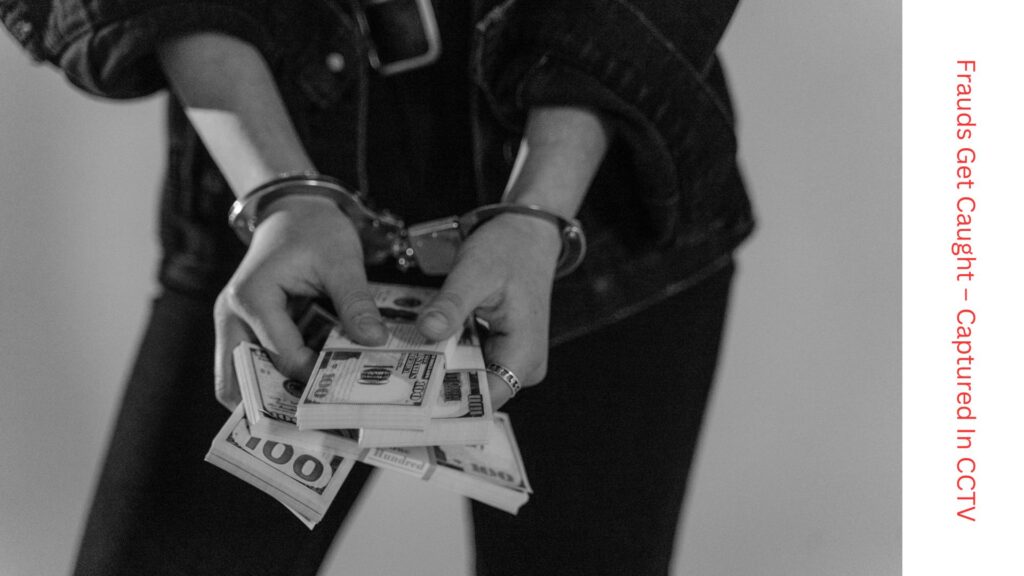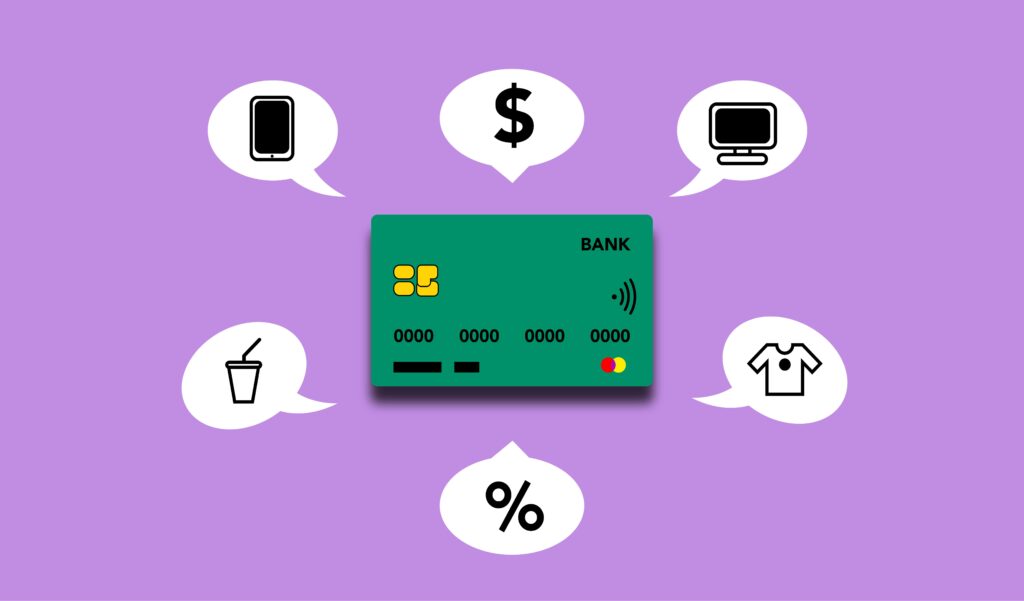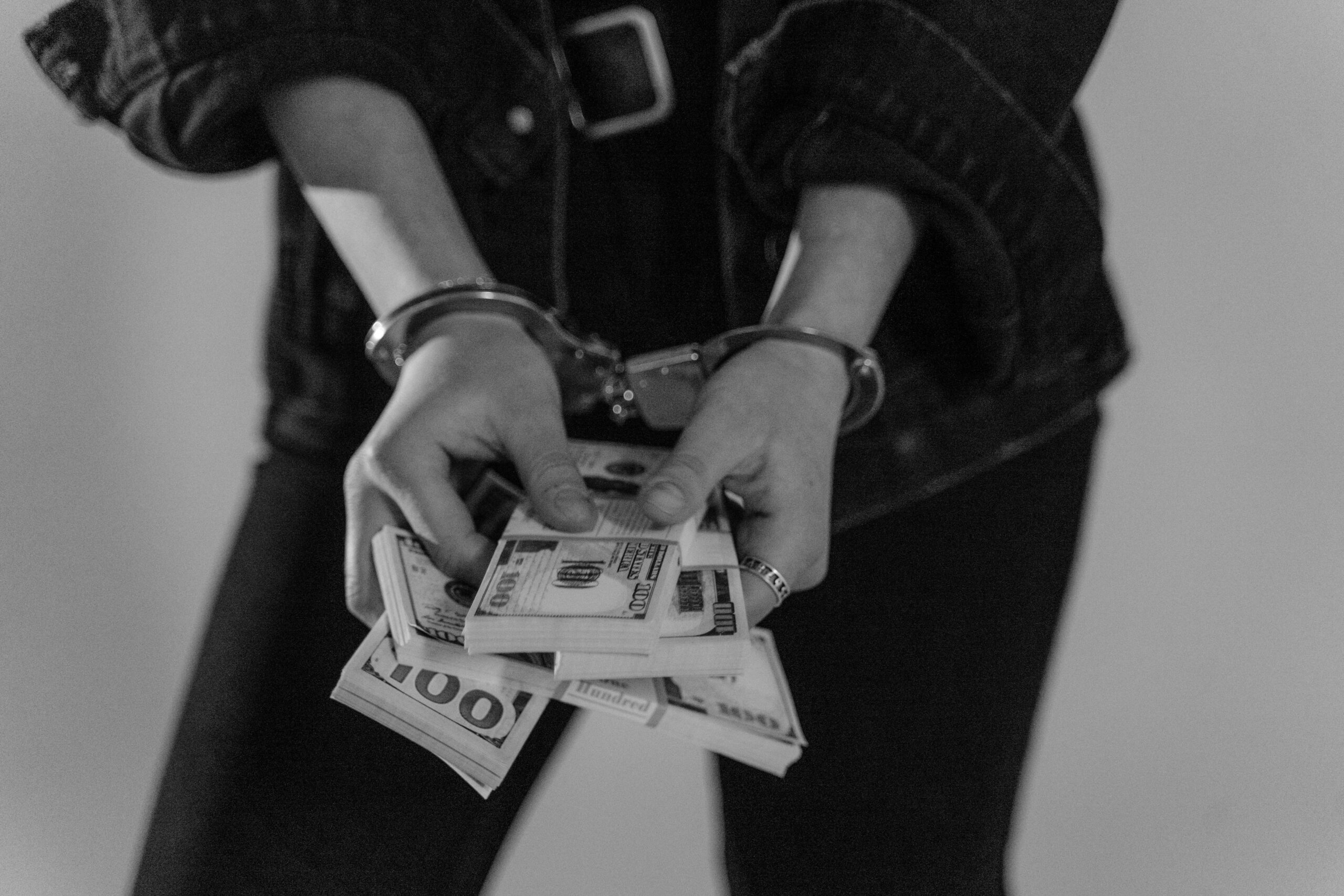How Often Do Credit Card Frauds Get Caught? Insights on CCTV Evidence in 2024
Credit card fraud is one of the most common crimes in the United States. It’s estimated that credit card fraud costs American businesses and consumers tens of billions of dollars each year. This widespread issue not only affects individual cardholders but also places a significant financial burden on businesses trying to combat the growing threat.
Despite the high cost, credit card fraud remains a persistent problem that requires more aggressive measures to address. Many companies are investing heavily in security technologies, yet fraudsters continually find new ways to exploit weaknesses in the system. The financial toll on both businesses and consumers is staggering, and without stronger preventive strategies, this crime will continue to escalate.

Credit cards are issued by financial institutions, often referred to as credit card companies, which sometimes grant cards to individuals who may not meet the eligibility criteria. This practice can open the door to misuse and fraud. These companies face the difficult task of balancing the need for accessibility to credit with the responsibility to ensure the security of their customers’ financial information.
The main purpose of issuing a credit card is to allow consumers to purchase items they may not be able to afford outright, such as vehicles, computers, and homes. While credit offers convenience, it also creates opportunities for fraud, especially when personal and financial data is mishandled. The rise of online shopping and digital transactions has further complicated efforts to prevent fraud.
This article will provide a detailed overview of credit card fraud, explaining how the process works and highlighting two of the most common types of fraud. It will also discuss ways to detect these fraudulent activities, offering insights into how businesses and consumers can better protect themselves from falling victim to these crimes.
What is credit card fraud?
Credit card fraud is a crime in which an individual exploits someone else’s credit card, often to make unauthorized purchases or payments. The most common method of fraud occurs when someone uses a credit card to pay for items or services the cardholder did not order or approve. This illegal act can leave the cardholder with unexpected charges and financial headaches.
Also known as unauthorized use of a credit card, credit theft, or false statements on a credit report, credit card fraud comes in various forms. Criminals may use different techniques to commit fraud, including phishing, skimming, or hacking into financial systems. Each method allows them to access card information, making it easier to commit the crime undetected.
Credit card fraud can be challenging to catch, as criminals often try multiple methods before succeeding. Fraudsters may exploit both digital and physical means to gain access to credit card information, making prevention a complicated task. Even with sophisticated detection systems in place, some fraudulent activities may still go unnoticed.
Credit reporting companies possess extensive data on individuals who have misused credit cards in the past. If something suspicious appears on your credit report, it’s crucial to act promptly by contacting your financial institution. Swift action can help prevent further damage and safeguard your finances.
In summary, credit card fraud involves the unauthorized use of a credit card, either through unauthorized purchases from merchants or when someone else uses the card without permission. Recognizing the signs of fraud and staying vigilant can help protect against falling victim to this widespread crime.

What are the different types of credit card fraud?
Credit card fraud is a widespread issue and remains one of the most common types of financial fraud. To combat this, credit card companies employ various methods to detect and prevent fraudulent activities. However, consumers can also take proactive steps to reduce their risk of falling victim to credit card fraud.
Here are 8 important tips to help protect yourself from credit card fraud:
- Be Aware of Your Surroundings: Stay alert, especially if someone offers you a gift card or a free purchase without knowing your name or credit card number—it could be a scam.
- Protect Your Personal Information: Keep sensitive data like your Social Security number, driver’s license number, and other personal information secure to prevent identity theft.
- Avoid Overspending: Overspending on your credit cards can not only damage your credit score but may also result in restrictions on card usage.
- Exercise Caution When Shopping: Be skeptical of offers like free gift cards or gifts while shopping. Only accept them if they’re legitimate and something you truly want or need.
- Monitor Your Credit Report: Regularly check your credit report to ensure it hasn’t been used for fraudulent activities.
- Verify Suspicious Information: If something on your credit report looks off, don’t hesitate to contact the credit reporting agency for clarification or correction.
- Avoid Paying with Gift Cards: Gift cards and certificates are typically single-use and may expire. Be cautious when using them, and opt for secure payment methods.
- Shop Smart for Gifts: When purchasing gifts, especially during the holidays, make sure it’s something the recipient genuinely wants and avoid impulse buying.
By following these tips, you can better protect your credit and personal information from fraud.
How do credit card companies prevent credit card fraud?
Preventing credit card fraud is one of the most critical responsibilities of credit card companies. By closely monitoring customer activity and understanding their spending habits, these companies can identify suspicious transactions and ensure that only authorized users have access to their cards. This helps minimize the risk of fraud and protect both the company and its customers.
In addition to fraud prevention, credit card companies also offer protection plans for victims of fraud. For instance, plans like the FreecreditReport.com Credit Card Fraud Protection Plan provide assistance and security to those affected, helping them recover from fraudulent activity.
Identity theft is another significant concern, which occurs when someone illegally obtains your personal information, such as your Social Security number or driver’s license, without your consent. This stolen information can be used to open accounts, make purchases, or access your credit.
Identity thieves often aim to gather your credit card details by using your personal information without permission. Once they have your Social Security number and other sensitive data, they can commit fraud, leaving you vulnerable to unauthorized transactions and financial loss.
The different ways in which credit card companies can detect and prosecute credit card fraud
- Credit card fraud is one of the most prevalent crimes, and it can affect anyone, regardless of age, location, or income. Credit card companies use a variety of methods to detect and prosecute fraudulent activities, helping to protect their customers from financial harm.
- Credit-report scam: This form of fraud occurs when someone uses your credit report to secure a loan or other financial service without your consent. The perpetrator may sell your personal information to another person or use it to obtain a job that doesn’t require a traditional bank account.
- Processor misuse: Another type of fraud involves the unauthorized use of your processing power. This can occur when you’re charged for items or services that were never ordered through your account, leaving you with unexpected charges.
- Illegal activity: Fraudsters sometimes use your credit score or personal details to gain access to free products or services. In these cases, scams may involve attempts to get you to sign up for fraudulent products or offers under false pretenses.
- Identity theft vs. credit fraud: While both crimes involve the misuse of personal information, identity theft specifically refers to using your personal data to open new accounts or apply for loans, whereas credit fraud typically involves unauthorized transactions on an existing account.

FAQs
Q. How many credit card frauds happen each year?
A. Credit card fraud remains a significant issue in the United States. According to the National Credit Union Administration, credit card fraud accounted for more than $440 million in losses in 2017 alone. This indicates that credit card fraud costs American businesses and consumers millions of dollars annually.
The incidence of credit card fraud has been increasing steadily over the years.
A 2016 study by the security firm Symantec revealed that 6 out of 10 businesses had encountered at least one fraudulent credit application or account denial in the previous five years. The same report highlighted a concerning trend: only about half of businesses have implemented adequate measures to protect customer information and prevent identity theft and other types of fraudulent activity.
Q. How often does identity theft occur in relation to bank fraud?
A. Identity theft is an escalating issue and is closely linked to bank fraud. It stands as one of the most common crimes against consumers in the United States and is frequently reported to financial institutions. This growing problem highlights the vulnerability of personal information and the ease with which it can be exploited for fraudulent purposes.
The prevalence of identity theft underscores the importance of being proactive in protecting your information. Identity thieves often target credit card details, using them to commit various forms of bank fraud. This makes it essential for individuals to remain vigilant and take measures to safeguard their financial data from unauthorized access.
To reduce the risk of becoming a victim, avoid letting your guard down. Identity thieves may analyze transaction patterns and exploit stolen credit or debit card information. Therefore, it is crucial to carefully process payments, both online and through phone banking, and ensure that correct credit card numbers are used in every transaction.
Employing robust security practices, such as two-factor authentication (2FA), can further protect your accounts from fraud. By taking these precautions, you can enhance your defenses against identity theft and minimize the potential impact of bank fraud.
Q. How long does it take to catch a credit card thief?
A. Credit card fraud is a prevalent crime in the financial world, occurring when an individual gains unauthorized access to someone’s personal information and exploits it for their own benefit. The process of catching a credit card thief can be lengthy and complex. In many cases, it may take months or even years for law enforcement to apprehend the perpetrator. This extended timeframe is partly due to the ease with which credit card information can be stolen and the challenges involved in tracing fraudulent activities back to the thief.
Q. Will the person who stole my credit card get caught?
A. Despite advanced security measures and technologies designed to prevent credit card fraud, it is not uncommon for thieves to successfully steal and misuse credit card information. While many credit card thieves are eventually caught and face legal consequences, there are instances where the perpetrator remains elusive. Factors such as the thief’s ability to evade detection and their overall credit profile can impact the likelihood of capture. In some cases, a well-managed credit score may help the thief avoid immediate suspicion, making it more difficult for authorities to track them down.
Q. Can the bank find out who used my credit card?
A. Credit card fraud is a significant issue, and while it may seem secure and convenient to use credit cards, it is a common target for thieves looking to access large sums of money. These criminals often use stolen credit card information to make purchases or withdraw cash, creating potential financial harm for victims.
Fortunately, banks have systems in place to investigate fraudulent transactions and work to identify who used your credit card. They monitor transactions for suspicious activity and use various tools to trace the unauthorized use of your card. If you suspect that you have been a victim of credit card fraud, it is crucial to contact your bank immediately. They can help you secure your account, investigate the issue, and take appropriate action to mitigate any potential damage. Always keep your information safe and be vigilant about monitoring your account for any unusual activity.
Q. How are credit card frauds detected?
A. Credit card fraud detection relies on advanced technologies and vigilant monitoring. Banks use sophisticated algorithms and machine learning to identify unusual transaction patterns and anomalies, flagging potentially fraudulent activity. Real-time monitoring systems alert both cardholders and banks to suspicious transactions, allowing for swift action. Additionally, law enforcement agencies collaborate with financial institutions to investigate and track down perpetrators using detailed transaction records and forensic analysis. Prompt reporting of suspicious activity by victims helps initiate investigations and protect accounts from further unauthorized use.
Here are some tips on how to avoid credit card fraud:
- Be aware of your surroundings: Stay vigilant and be cautious of anyone who seems out of place or dishonest when using your card. Pay attention to suspicious behavior, such as unusual people or vehicles in the vicinity. Additionally, be skeptical of transactions that appear too good to be true, and always verify their legitimacy.
- Don’t overspend: Avoid spending more than you can afford, particularly on unnecessary items. Keeping your spending within your budget not only helps manage your finances but also reduces the risk of falling prey to fraud by maintaining a closer watch on your transactions.

Q. Do people who commit credit card fraud get prosecuted?
A. Credit card fraud is a major concern, with the Federal Trade Commission (FTC) estimating that fraudsters steal around $23 billion from consumers each year. When credit card fraud is detected, it can lead to significant legal consequences, including fines and imprisonment. Despite these potential penalties, prosecution rates for credit card fraud are relatively low.
One reason for this is the pressure from creditors and financial institutions to resolve disputes quickly. Many cases are settled outside of the courtroom to avoid lengthy legal processes and additional costs. As a result, only a small percentage of fraud cases, about 2% according to a MarketWatch study, lead to formal arrests or legal settlements.
This pressure to settle disputes can also affect how consumers experience the resolution process, as they may face challenges in seeing their cases through to criminal prosecution. The emphasis on quick settlements often means that fraudsters may not always face the full extent of legal repercussions for their actions.
Q. Which countries are the most credit-prone to fraud?
A. Countries like the United States, China, and Mexico are notably credit-prone to fraud. In the United States, credit card fraud is estimated to cost the economy around $128 billion annually. China faces significant issues with counterfeit goods and identity theft, contributing to its high risk of credit fraud. Similarly, Mexico struggles with ensuring accurate credit ratings for its citizens and managing high-interest rates, which can exacerbate problems related to credit fraud.
Conclusion
In conclusion, credit card fraud is a prevalent crime that, while it can be detected and addressed, remains a significant threat due to the constant ingenuity of criminals seeking to exploit your financial information. It’s essential to stay vigilant and take proactive measures to safeguard your credit card details. By being cautious and monitoring your transactions regularly, you can help prevent fraudsters from taking advantage of you and protect your financial well-being.











